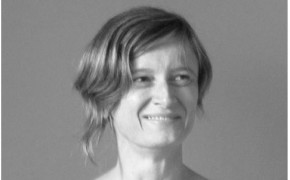By developing an innovative Web-oriented ICT platform SACHER fosters the consolidation of new models of cultural business connecting public & private actors
The promotion of the tangible Cultural Heritage (CH) represents a strategic asset for the development, innovation and renewal of the cultural and tourist circuits of the cities of art. However it still lacks an advanced ICT platform managing the CH Data life-cycle (documentation > analysis > project > restoration> maintenance > management > monitoring) and taking into account the restoration and the necessary safeguarding measures to ensure exploitation by the public.
SACHER project aims to fill this gap, by creating an innovative ICT platform based on a Cloud Computing infrastructure, fully distributed and open source, able to integrate existing ICT platforms owned by public and private entities, thus facilitating storage and use of CH data (often fragmented, heterogeneous and stored in different archives) for both specialized users (mainly architects, engineers, restorers and sector-specific enterprises) and the public (tourists and citizens).
The platform will be able to provide unique identification tools and 3D modeling of Cultural Heritage as well as application services that will ensure access, analysis and advanced data presentation.
At business model level, participatory design models have been used to foster creation of new contents that will enable the evaluation and implementation of cultural services through involvement of common users and cultural experts. SACHER platform is thus a candidate to become the meeting place for a permanent ecosystem of actors
Resources needed
SACHER was funded by Emilia-Romagna Region (ROP ERDF 2014-2020). Grant: 879.298,30 €
Human resources: ICT labs for the platform design & realization; companies with high skills in cloud computing & in the development & integration of complex services; labs specialized in CH safeguard & restoration
Evidence of success
SACHER cloud infrastructure is characterized by minimum barriers to technology access and reduced implementation & mgmt costs. The use of EU standards such as FIWARE makes the platform flexible & usable in other contexts.
The results validation was carried out on the monuments of Bologna city center, releasing a trial version of the final product that can be quickly transferred to the market & other cities.
The services, tested by restorers & citizens, had a positive feedback from users.
Difficulties encountered
Data mgmt: collecting & integrating data from various archives is crucial, also to guarantee the interoperability with existing platforms
Platform mgmt: privacy policy & financial sustainability require specific skills & competences
Security: data must be stored in a secure & reliable server
Potential for learning or transfer
A federated & open source cloud capable of handling CH data is an opportunity for the EU territories keen on increasing the value of their assets. For that reason, the team used the cloud platform IaaS Openstack to implement the project, since it allows horizontal scalability achieved by simply adding new compute nodes.
Another key element is the development of 4 different service prototypes, enabling cities to choose the most suitable & useful ones. Furthermore, being the technological infrastructure flexible and interoperable, it is possible to develop & integrate new services.
Finally, a participatory design approach was adopted to foster cultural service creation by involving content users & cultural experts.
Therefore, thanks to its technological support and participatory approach, SACHER boosts the creation of an ecosystem of actors producing new value chains in the collaborative fruition of services.
Open questions are the platform financial sustainability & long-term mgmt.
Please login to see the expert opinion of this good practice.
Tags: Cultural, Design, Digital, Instrument, Networks, Open source








